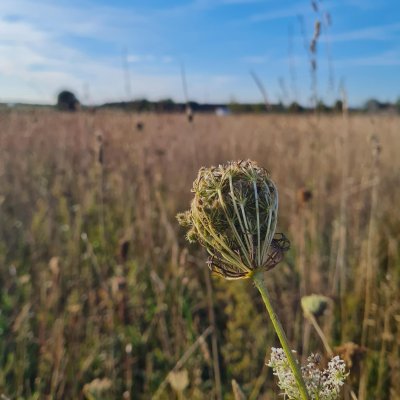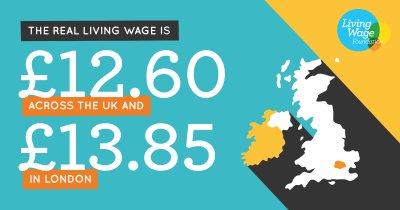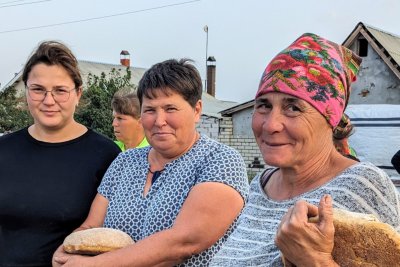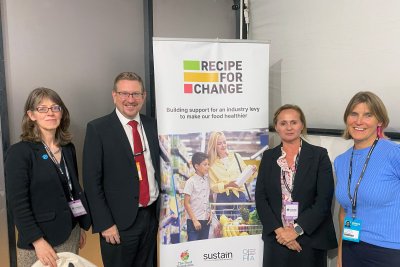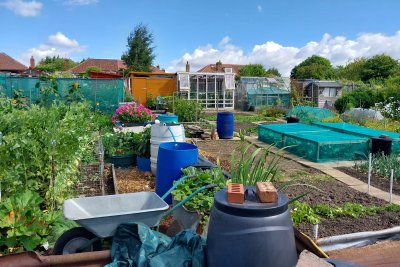 Copyright: shutterstock
Copyright: shutterstock
Every time we eat we have the power to create a positive impact on our planet. Our food choices can support a sustainable and healthy future for generations to come. Every meal is a delicious opportunity to champion agro-ecological farmers and local businesses while reducing our food footprint.
The global food system plays a significant role in climate change, deforestation, and the decline of biodiversity. The emissions generated by the food system alone could push us beyond the warming thresholds set by the Paris Agreement. However, there is hope. One solution to mitigate these impacts is adopting the Planetary Health Diet. This diet, developed by the Lancet Commission, emphasises a balance of fruits, vegetables, whole grains, and modest amounts of meat and dairy.
Embracing a climate-friendly diet allows for flexibility, accommodating individual needs, preferences, and cultural traditions. Crucially a climate-friendly diet can also be better for public health, as this globally endorsed approach promotes more diverse, nutritious sources of proteins, balancing meat consumption with fresh plant-based options.
To make the UK diet align with this vision, we must double our consumption of vegetables and nuts while reducing meat consumption and incorporating more legumes. Ultimately, there is no reaching climate targets without changing the way we eat, this is a key message we ought to remind ourselves.
London’s local authorities have a vital role to play in leading the transition to a low-carbon, healthy, and equitable food system. Through procurement, for example, we can ensure all food provision across council services supports key climate, nature and public health goals. This includes reducing food waste, promoting sustainable menus and diets, and supporting better food production practices. By investing in a better food system, local authorities can affordably generate co-benefits such as alleviating the cost of living crisis and reducing expenses for the council.
To help London’s local authorities realise this opportunity, the London Borough of Hackney, on behalf of London Councils, and London boroughs’ One World Living programme, has been co-leading a Working Group of Council Officers and food experts in the city. Alongside ReLondon and Sustain, with the support of Ellen MacArthur Foundation, this group has developed a city-wide food procurement commitment known as London’s Food Purchasing Commitment.
This commitment sets a shared ambition for all London boroughs and an unequivocal message to our food system. It aligns with local net zero and One World Living commitments, as well as the Mayor’s target to reduce food waste by 50% per person by 2030.
To support signatories in fulfilling these commitments, the food working group is developing a toolkit. It will guide local authorities in aligning good food procurement practices with council strategies. There are three key commitments signatories will be asked to make:
Reduce food emissions — Measure and reduce emissions per plate annually, aiming for an average of 1.04 kg of CO2-eq per meal by 2030 or a 38% reduction from the 2023 baseline.
Reduce food waste — Measure and share food waste data annually, targeting a 50% reduction by 2030, compared to the average baseline figure calculated in 2023.
Promote food provenance — Measure and allocate a percentage of the ingredient budget in 2023 to support fair, sustainable, and community-focused food production. This includes sourcing from local and smaller producers, using fair-trade produce, MSC certified fish, free-range meat, dairy, and eggs, as well as certified organic produce.
We can all make easy and affordable changes towards achieving the above. In school canteens, we can introduce two plant-based days a week, reducing meat consumption by buying less but better meat, and increasing the use of protein-rich plant alternatives. By embracing international cuisines from regions with traditionally sustainable diets, we can celebrate diverse flavours while supporting our planet. Redistributing food for human consumption and purchasing from local and smaller producers (Better Food Traders) can contribute to community wealth building. Accreditation programmes like the Soil Association’s Food for Life Served Here or the Sustainable Restaurant Association’s Food Made Good can provide guidance and recognition for those making sustainable food choices.
London’s local authorities are invited to sign the commitment this summer. It aligns with similar pledges made by other cities — Milan, Copenhagen, Ghent, New York, and Toronto. It’s time for London to join this global movement towards a more sustainable food system.
Join the movement. Download and sign the commitment and be part of the positive change. Let’s inspire others to follow our lead and create a future where our food nourishes both — our bodies and the planet. Together, we can embrace this opportunity and become a role model for cities around the world. The journey starts with our procuring choices, and it begins with each one of us.
Climate Change and Nature: Sustain has taken a keen interest in the rapidly accumulating evidence about the effect of food and farming on climate change and nature, as scientific evidence emerges that our food system is a very significant contributor to greenhouse gas emissions and biodiversity loss.
Sustain
The Green House
244-254 Cambridge Heath Road
London E2 9DA
020 3559 6777
sustain@sustainweb.org
Sustain advocates food and agriculture policies and practices that enhance the health and welfare of people and animals, improve the working and living environment, promote equity and enrich society and culture.
© Sustain 2024
Registered charity (no. 1018643)
Data privacy & cookies
Icons by Icons8

